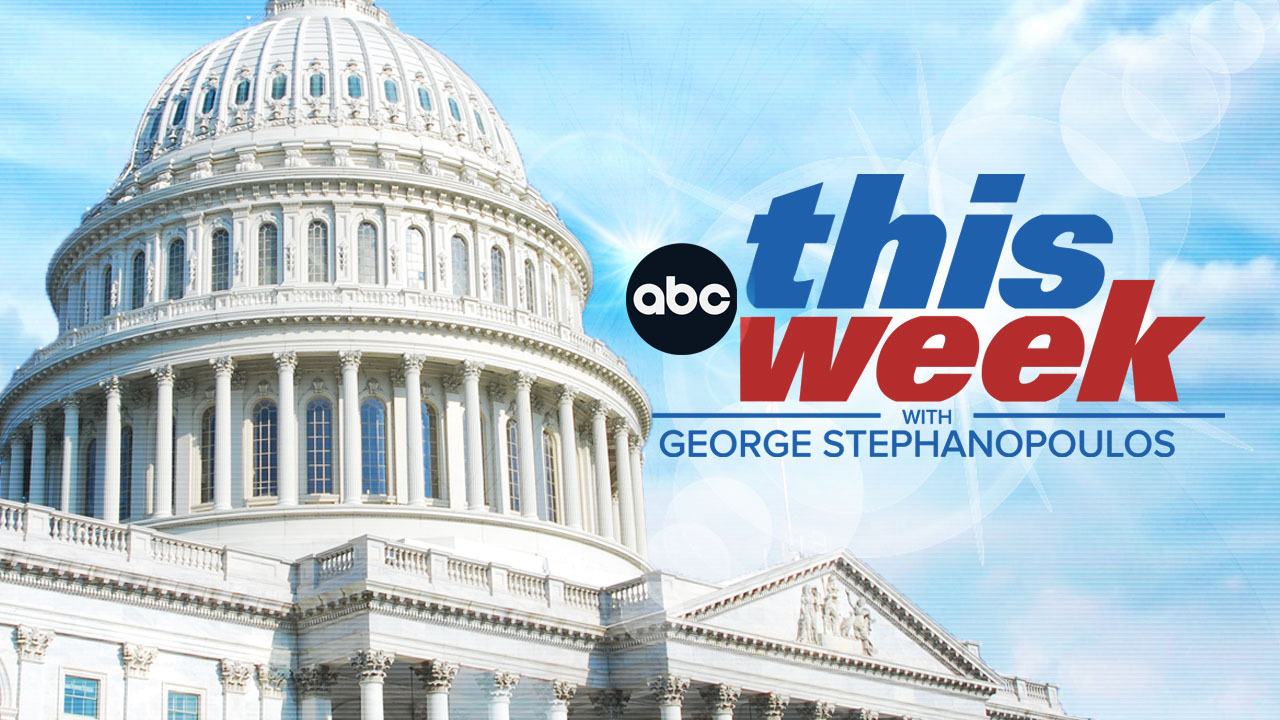WHEN: Today, Monday, September 18, 2023
WHERE: CNBC’s “Squawk on the Street”
Following is the unofficial transcript of a CNBC interview with United States Treasury Secretary Janet Yellen on CNBC’s “Squawk on the Street” (M-F, 9AM-12PM ET) today, Monday September 18. Following are links to video on CNBC.com: https://www.cnbc.com/video/2023/09/18/janet-yellen-dont-see-any-signs-that-the-economy-is-at-risk-of-a-downturn.html, https://www.cnbc.com/video/2023/09/18/janet-yellen-strength-of-demand-in-labor-market-showing-signs-of-cooling.html and https://www.cnbc.com/video/2023/09/18/janet-yellen-on-the-auto-strikes-we-want-to-see-the-two-sides-come-to-a-win-win-agreement.html.
All references must be sourced to CNBC.
SARA EISEN: Hi, Carl. Thank you very much and I am here with Treasury Secretary Janet Yellen. Thank you so much for taking the time to speak with us here in New York.
SECRETARY JANET YELLEN: Thanks for the invitation.
EISEN: I’ll just pick up where Phil left off. And I know you’re not involved in the negotiations around the UAW, some of your colleagues are doing that. But how are you thinking about the impact or potential impact of the strike on the U.S. economy?
SECRETARY YELLEN: Well look, we want to see the two sides come to a win-win agreement. President Biden has made clear he expects them to work hard to negotiate 24/7 to get to a solution. And so we’re hoping that that will happen soon.
EISEN: Because you have to be worried about inflation. I would think just as it’s starting to come down, supply chain disruptions are riskier, aren’t they?
SECRETARY YELLEN: Well, you know, I think it’s premature to be making forecasts about what it means for the economy. It would depend very much on how long the strike lasts, and exactly who’s affected by it. But the important point, I think, is that the two sides need to narrow their disagreements and to work for a win-win, a contract that’s good, good for the workers and for the industry as well, these the industry has been doing well, and President wants to see the workers come out ahead as well.
EISEN: It’s part of a string of strikes that that we have seen, Hollywood, the writers, the rail workers, the teamsters, upcoming strike potentially for health care workers on the West Coast. What do you think is driving all of this labor activism that we haven’t seen the likes of in years?
SECRETARY YELLEN: Well, we have a good strong labor market and the demand for workers has been high. And you know, it’s important for workers to be able to realize gains. The Treasury Department recently put out a kind of white paper about labor unions and the contribution they make to our economy. And we want to see good jobs that pay wages that enable people to live a good life, especially people without a college education. So the President feels very strongly, he’s very strongly in favor of collective bargaining and the ability to strike is part of that.
EISEN: But it ultimately is inflationary and disruptive, isn’t it?
SECRETARY YELLEN: Well, I don’t think that we’ve seen, we’ve seen that so I, you know, it depends very much on the circumstances.
EISEN: You mentioned the strong labor market, it’s been a tight labor market. Obviously, millions of openings more than unemployed, but it is starting to cool—
SECRETARY YELLEN: It is.
EISEN: And I wonder what trajectory you think that will take?
SECRETARY YELLEN: Well, it is cooling but it’s the cooling does not involve significant layoffs. Partly, it’s people joining the labor market so the supply of labor has increased as people have come back, labor force participation has moved up. Also the strength of demand has cooled, you see that in the decline in the number of openings. The number of openings relative to the number of people looking for work is still quite high. That’s a very healthy labor market, but not quite as hot as it was and that fraction of workers who quit their jobs that’s sometimes a metric that gives some insight into the just how hot the labor market is. That was exceptionally high, and it’s also moved down but moved down to the kinds of levels we saw pre-pandemic. So we have a good healthy labor market, but not quite as hot as it was. And that’s important because, obviously, our objective is to bring inflation back down to 2%.
EISEN: And you’ve, you have been a big believer in the soft landing story. We’ve seen it play out so far. But aren’t we just starting to see the impact of the lagged effects of Fed tightening, 525 basis points. How do you think about the timeline there?
SECRETARY YELLEN: Well there are lags in the impact of monetary policy on the economy and we would expect to see some impacts. I think we’ve certainly seen it in the housing market. But look, we still have a good healthy labor market, consumer spending remains quite robust. We’ve seen strong industrial production. I don’t see any signs that the economy is at risk of a downturn. And this is the best of all worlds to see continued strength in the economy, a good strong labor market and inflation moving down. And that is what we’re seeing.
EISEN: Do you have a timeframe in mind when we might see that peak lag and how severe it would be?
SECRETARY YELLEN: Well, I don’t think anybody knows for sure. But credit continues to be available, although the rates are clearly higher. That does make a difference in it. It has, it has made a difference in some sectors. But you know, we’re seeing some cooling in the economy, some slowdown of growth off record high levels, which is appropriate when the economy is operating at its potential. So I’m pleased by what I see in the economy. I think we’re achieving lower inflation, which is, of course very important to households and tremendously important objective, but still a good strong labor market.
EISEN: We are seeing lower inflation, which is why I’m wondering how you’re thinking about the gas price, you know, big jump in the month of August. Crude is back above $90 per barrel. The Saudis are extending the production cuts through the end of the year. Are you looking at taking any action on this front?
SECRETARY YELLEN: Well, the President wants to make sure that gas prices remain affordable for Americans. Americans care a great deal about the price of gas. They’re still down $1.20 of their highs last summer although they have gone up recently. China has ended its pandemic lockdowns and although Chinese growth is slower than expected, China coming back online, and the continuation of the production cuts by Saudi Arabia has lifted oil prices somewhat. We’re monitoring the situation very closely. The President has taken action over the last year. Certainly, the releases of oil from the Strategic Petroleum Reserve have been important in holding down oil prices and we’ll continue to monitor that closely.
EISEN: I just wonder how much space you have and what you would potentially do if because we are losing progress on this front with oil prices rising?
SECRETARY YELLEN: Well, my expectation is that they will stabilize but we’ll just keep an eye on it.
EISEN: Another headwind that people are looking at is the end of the moratorium on student loans. So folks are going to have to start paying October 1, and we’re wondering what impact that could have on consumer spending. It’s a key demographic cohort.
SECRETARY YELLEN: Well, for some for some families, I think it will impact their spending. The President is offered up the education department a new set of student loan plans that should make these payments more affordable and will be widely available but yes, they will start up again and it could make a difference.
EISEN: You mean in consumer spending—
SECRETARY YELLEN: It could make some difference.
EISEN: And GDP as a risk factor.
SECRETARY YELLEN: You know, I don’t know how large that is. But you know, it’s something to watch.
EISEN: The other thing we’re watching of course is the government and a potential shutdown again, two weeks to go. The Republicans have this short-term funding bill out, not clear whether they had their party’s full support or whether it would go anywhere in the Senate. Are you anticipating a shutdown?
SECRETARY YELLEN: There’s absolutely no reason for a shutdown. The Senate Republicans the Democrats in both the House and Senate stand ready to enact appropriations bills that are consistent with the bipartisan agreement that was reached to lift the debt ceiling and we want to see Congress pass legislation that will create appropriations or a continuing resolution. There’s absolutely no reason for a shutdown and we want Congress to do its work of funding the government and keeping it open.
EISEN: But the time is, time is running out, as you know. Is that a, could that have a potential economic impact if we see a shutdown?
SECRETARY YELLEN: It could have some impact. But there is no reason for it to occur and we want Congress to stay focused. We’ve got a good strong economy as we just discussed and creating something that, situation that could cause a loss of momentum is something we don’t need as risk at this point.
EISEN: Some people think the reason we have such a good strong economy in the face of all these interest rate hikes is all the fiscal spending we have seen, the Infrastructure Act, the American Rescue Plan, the Inflation Reduction Act, the Chips Act, all of that stimulus working against what Fed Chair Powell has been doing to try to slow the economy to fight inflation. Do you agree?
SECRETARY YELLEN: Well, the Infrastructure Act, the Chips Act, the Inflation Reduction Act, these are all long-term spending measures that will really boost the growth of the economy and add to its job creating capacity long term. And the, many of those bills have been paid for and so I wouldn’t regard it as net stimulus. I think the American Rescue Plan, which was stimulus, shielded families that could have been very badly impacted by the pandemic and kept a roof over their heads and food on the table. And it ensured the fastest recovery of any economy. The United States is doing better than any economy around the world. And we’ve not seen the long-term job loss or scarring that easily could have occurred. The bipartisan agreement to raise the debt ceiling involved a trillion dollars of deficit reduction. President Biden is committed to keeping the economy on a fiscally sustainable course and he proposed budget with $3 trillion dollars of deficit reduction over the next decade. So we’re both investing in the long-term health of the U.S. economy to boost growth and create good jobs and clean energy in semiconductors to rebuild our infrastructure to make this economy more productive. And I think that’s a strategy that’s really working, investing in American and Americans.
EISEN: But it is coming at a cost and that deficit as a percent of GDP, this year’s projected to be almost 6%, double what was initially expected in a time where we have good growth and full employment. Shouldn’t it be going the other way?
SECRETARY YELLEN: Well, we have to make sure that we do keep deficits under control going out. The statistic or metric that I look at most often to judge the fiscal, our fiscal course is net interest as a share of GDP. And even with the rise we’ve seen in interest rates, that remains at a very reasonable level of around 1%, but we’d need to be careful about what we do going forward in order to make sure we stay on this sustainable course.
EISEN: But the impact of some of those bills that you were talking about, don’t they really start to hit into next year and couldn’t that keep inflation sticky and potentially cause some concerns in the bond market about issuance to pay for all of it?
SECRETARY YELLEN: Well, I’m not really seeing concerns in the bond market about issuance. Obviously, the Fed has tightened monetary policy and that’s pushed rates up, but there are pay fors in the legislation that funded all of these, all of these programs and so I’m not really concerned about the impact that they’ll have. Certainly greater deficit reduction is possible. The President has proposed a series of measures that would reduce our deficits over time while investing in the economy and this is something we need to do going forward.
EISEN: I do want to ask you about your trip this week and your top priorities and messages for world leaders at a time where, if you look at the global economy, you mentioned China’s weaker than expected, Europe is also showing some more weakness, Germany going negative in growth. What are you saying to them?
SECRETARY YELLEN: Well, we’re focused this week on measures to address issues in the global economy and to achieve stronger and sustainable growth. Russia’s continuing brutal war in Ukraine is having a very adverse impact and we’re spending time this week discussing food prices and what we can do to alleviate hunger and shortages of food, especially since the Black Sea Grain Initiative, Russia has ended that. We’re focused on climate change and the impact the adverse impact that’s having on developing countries, on emerging markets, that interacts with scarcity of food. And we’re focused on greatly expanding the amount of aid and private investment that we can channel into emerging markets in developing countries around the world. We have an initiative to enable the World Bank and the other multilateral development banks to greatly expand their provision of resources and to mobilize private capital for climate change. We’re focused on health, preventing future pandemics and mobilizing funds both public and private through the President’s partnership for global investment with the G7 to boost infrastructure, development in a meaningful way, infrastructure investment around the world. So these are some of the main focuses this week.
EISEN: It’s a heavy agenda.
SECRETARY YELLEN: It is.
EISEN: We’ll let you get to it but we thank you for the time.
SECRETARY YELLEN: Thank you so much, Sara.
EISEN: Here in New York. Janet Yellen, Treasury Secretary of the U.S. Back over to you in the studio, Carl.


